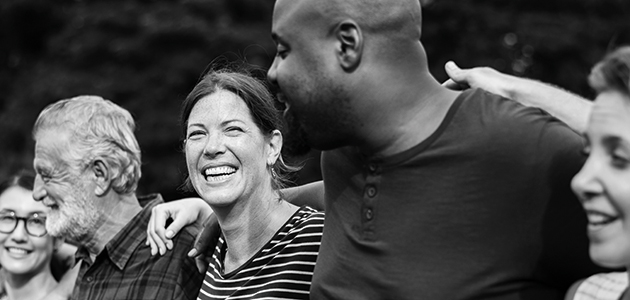Thought for the week: Terry Hobday on real community
‘Previous generations of Friends had a common language, a baseline from which to begin. We do not, so we have a choice...’

Is it my imagination or did we once have a Testimony to Community? We need to rediscover it, or think about fostering one. This will not be an easy task, as there are cultural, social and psychological roadblocks in our way. I am indebted to previous generations of Friends for their insight and understanding.
They, of course, had a common language, a baseline from which to begin. We do not, so we have a choice: we could recover the original language, which means re-learning, or we could develop a new one – or maybe do as the first generation of Friends did and combine the two.
Re-learning would involve some work but might also give us a deeper appreciation of the discoveries made by those first Friends. Inventing a new language presents a greater challenge because we would need communal assent. And there’s the rub. We live in an age of extreme individualism. This age makes people frightened, angry, anxious and depressed. The secular world prescribes better mental health treatment and support, and heaven knows we need that, but the best remedy for this existential pain is the availability of a third way, which is to neither flee from, nor succumb to, the ‘spirit of the age’. To be ‘in the world but not of it’.
A community that could offer this kind of space would be attractive to many people. It would be a message of hope based in reality. They may be further convinced if there were a galvanising message at the heart of that community. I would also look for solidarity and a strong commitment to one other. This community would look something like the one Jesus envisages in his lament over Jerusalem. (‘How often I have longed to gather your children together, as a hen gathers her chicks under her wings.’) Or perhaps the one described by Francis Howgill in Quaker faith & practice (19.08): ‘The Kingdom of Heaven did gather us and catch us all, as in a net, and his heavenly power at one time drew many hundreds to land. We came to know a place to stand in and what to wait in; and the Lord appeared daily to us, to our astonishment, amazement and great admiration, insomuch that we often said one unto another with great joy of heart: “What, is the Kingdom of God come to be with [people]?”’ That generation was prepared to suffer for its commitment to God and to each other (I believe they saw the two as inseparable). They knew that they were part of something much greater than self.
Christianity is totally dependent upon the power and energy that comes to it, and though it, via the Holy Spirit. It is this dynamism that creates the bonds and commitments that make up community. ‘I am the vine; you are the branches. If you remain in me and I in you, you will bear much fruit; apart from me you can do nothing’ (John 15:5, NIV). ‘You can do nothing’: what a sobering thought and a challenge. But ‘If you remain in me and my words remain in you, ask whatever you wish, and it will be done for you’. In a broken world that is famished for real bonds, can we model what ‘community’ really means? I hope so.
You need to login to read subscriber-only content and/or comment on articles.
